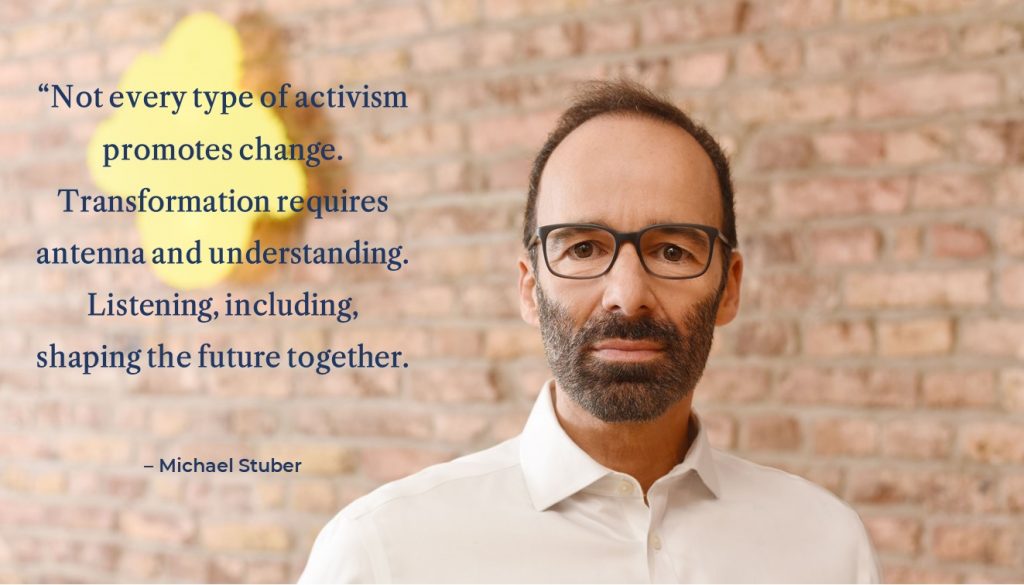When activism spurs positive impact – and when it doesn’t
Broad co-determination, social justice, peace and equal rights for women, LGBTQ, immigrants etc. – activism has been good for everyone and still triggers resistance. The difference lies in the approach. And in the context.
Article 5 of 10 'Diversity unites busienss and prosperity' series
June 28 marks the anniversary of the start of the Stonewall riots – a global symbol of effective activism. In New York’s Christopher Street, outrage turned into movement, resistance into change. But what began as a catalyst for equality is now polarising and controversial (→ rainbow flags or bands). Why is that?
“Activism has achieved great things – but not every loud statement changes a system. If you want progress, you need intuition, you have to ask the right questions and be able to listen,” explains former activist and current D&I Engineer, Michael Stuber, calling for more collaboration.
Constructive activism: harnessing the power of togetherness
Activism brought peace, co-determination and social justice and improved the lives of the vast majority. Today, activism has a confrontational, normative and exclusionary effect on many. It cloudily criticises ‘the others’, ‘those at the top’, ‘the privileged’ and thus almost everyone. In the campaigns, the desire to make win-win progress together gets out of sight.
Learning from history: winning people for the future
When activism aims at raising profiles or constantly increases pressure, polarisation is inevitable. Successful transformations in history show: Change requires belonging. When accusation becomes more important than impact, many turn away – not only ‘old white men’, but also progressive leaders, committed women or successful minorities who got used to constructive cooperation.
“Our common future needs critical thinking and a clear awareness of all diversity. If activism excludes others, it undermines its credibility – and prevents change instead of facilitating it.” – Michael Stuber
Between loud and effective: companies shape progress
Companies play an important role in social development, but different rules apply to them than in politics. In business, positive impact is not achieved through demands, but by understanding the system, not through hostile images, but with allies. Activism can inspire – if it connects the dots. Blame others polarises and hinders cooperation.
Reflection instead of revolution
Constructive activism has always asked: What moves people? What kind of change is sustainable? And what does it take to achieve social inclusion? Instead of special interest demands, Stuber calls for integration and individuality to be used as unifying drivers. Understanding must replace indignation – and blatant demands must become a desire for joint progress.
Essential reading tips on facilitating constructive change
Is DEI Activism helping or hindering Corporate Diversity progress?
Responsible leadership is also needed in Politics and Society
Almost 200 articles on LGBTQI* diversity
Info – Box
12 demands on modern, inclusive activism
- Clarity of purpose: formulate sustainable, realistic goals – no populist distortions.
- Communicate in a unifying way: Emphasize commonalities rather than opposites.
- Focus on systemic impact: Address causes instead of symptoms.
- Think in terms of majority: do not monopolize diversity as a niche project.
- Consider the context: Act differently in companies than in politics or society.
- Gain allies: Take potential supporters seriously, don’t devalue them.
- Use history: Appreciate progress – instead of dismissing it wholesale.
- Differentiate narratives: Not every problem is systemic …ism.
- Share findings: Disseminate nuanced data and solid studies rather than opinions.
- Understand structures: Analyze processes and power relations.
- Leave room for criticism: Remain open to other perspectives.
- Share responsibility: Involve all groups as part of the solution.

